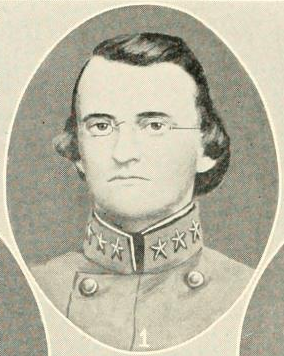Sion Hart Rogers on:
[Wikipedia]
[Google]
[Amazon]
 Sion Hart Rogers (September 30, 1825 – August 14, 1874) was a
Sion Hart Rogers (September 30, 1825 – August 14, 1874) was a
 Sion Hart Rogers (September 30, 1825 – August 14, 1874) was a
Sion Hart Rogers (September 30, 1825 – August 14, 1874) was a U.S. Congressman
The United States House of Representatives, often referred to as the House of Representatives, the U.S. House, or simply the House, is the lower chamber of the United States Congress, with the Senate being the upper chamber. Together they ...
and Attorney General
In most common law jurisdictions, the attorney general or attorney-general (sometimes abbreviated AG or Atty.-Gen) is the main legal advisor to the government. The plural is attorneys general.
In some jurisdictions, attorneys general also have exec ...
of North Carolina
North Carolina () is a state in the Southeastern region of the United States. The state is the 28th largest and 9th-most populous of the United States. It is bordered by Virginia to the north, the Atlantic Ocean to the east, Georgia and So ...
.
Biography
Born nearRaleigh, North Carolina
Raleigh (; ) is the capital city of the state of North Carolina and the List of North Carolina county seats, seat of Wake County, North Carolina, Wake County in the United States. It is the List of municipalities in North Carolina, second-most ...
in 1825, Rogers attended common schools in Wake County
Wake County is located in the U.S. state of North Carolina. In the 2020 census, its population was 1,129,410, making it North Carolina's most-populous county. From July 2005 to July 2006, Wake County was the 9th-fastest growing county in the U ...
and attended the University of North Carolina at Chapel Hill
A university () is an institution of higher (or tertiary) education and research which awards academic degrees in several academic disciplines. Universities typically offer both undergraduate and postgraduate programs. In the United States ...
, graduating in 1846. After studying law, he was admitted to the bar in 1848 and commenced practice in Raleigh. As a Whig, he was elected to the 33rd United States Congress
The 33rd United States Congress was a meeting of the legislative branch of the United States federal government, consisting of the United States Senate and the United States House of Representatives. It met in Washington, D.C. from March 4, 1853, ...
in 1852 and served one two-year term (March 4, 1853 - March 3, 1855), declining a renomination in 1854.
Rogers served solicitor of the Raleigh district of the superior court. During the American Civil War
The American Civil War (April 12, 1861 – May 26, 1865; also known by other names) was a civil war in the United States. It was fought between the Union ("the North") and the Confederacy ("the South"), the latter formed by states th ...
, he served in the Confederate States Army
The Confederate States Army, also called the Confederate Army or the Southern Army, was the military land force of the Confederate States of America (commonly referred to as the Confederacy) during the American Civil War (1861–1865), fighting ...
as a lieutenant in the Fourteenth Regiment of North Carolina State Troops in 1861; was commissioned colonel of the Forty-seventh North Carolina Infantry April 8, 1862, and resigned January 5, 1863, upon being elected attorney general of the State of North Carolina.
Rogers served as North Carolina Attorney General
The Attorney General of North Carolina is a statewide elected office in the U.S. state of North Carolina. The attorney general is a constitutional officer responsible for representing state agencies in legal matters, supplying other state offici ...
until 1866. In 1868, he stood for election to Congress once more, but was unsuccessful. He claimed election as a Democrat
Democrat, Democrats, or Democratic may refer to:
Politics
*A proponent of democracy, or democratic government; a form of government involving rule by the people.
*A member of a Democratic Party:
**Democratic Party (United States) (D)
**Democratic ...
in 1870 to the 42nd United States Congress
The 42nd United States Congress was a meeting of the legislative branch of the United States federal government, consisting of the United States Senate and the United States House of Representatives. It met in Washington, D.C. from March 4, 1871, ...
, (March 4, 1871 - March 3, 1873). His election was contested, however, by his Republican opponent, and Rogers was disqualified to serve under section 3 of the Fourteenth Amendment. After the election contest was dropped and Congress voted to remove his disabilities, Rogers was sworn in on May 23, 1872.Congressional Globe, 42d Congress, 2d session, p. 3784. Rogers served a single-term and failed to gain re-election in 1872 and died in Raleigh on August 14, 1874; he is buried in the City Cemetery in Raleigh.
He built the Rogers-Bagley-Daniels-Pegues House about 1855, and it was listed on the National Register of Historic Places
The National Register of Historic Places (NRHP) is the United States federal government's official list of districts, sites, buildings, structures and objects deemed worthy of preservation for their historical significance or "great artistic v ...
in 1979.
References
Retrieved on 2008-10-19 {{DEFAULTSORT:Rogers, Sion 1825 births 1874 deaths Confederate States Army officers Burials at City Cemetery (Raleigh, North Carolina) People of North Carolina in the American Civil War North Carolina Attorneys General North Carolina Whigs Whig Party members of the United States House of Representatives Democratic Party members of the United States House of Representatives from North Carolina 19th-century American politicians